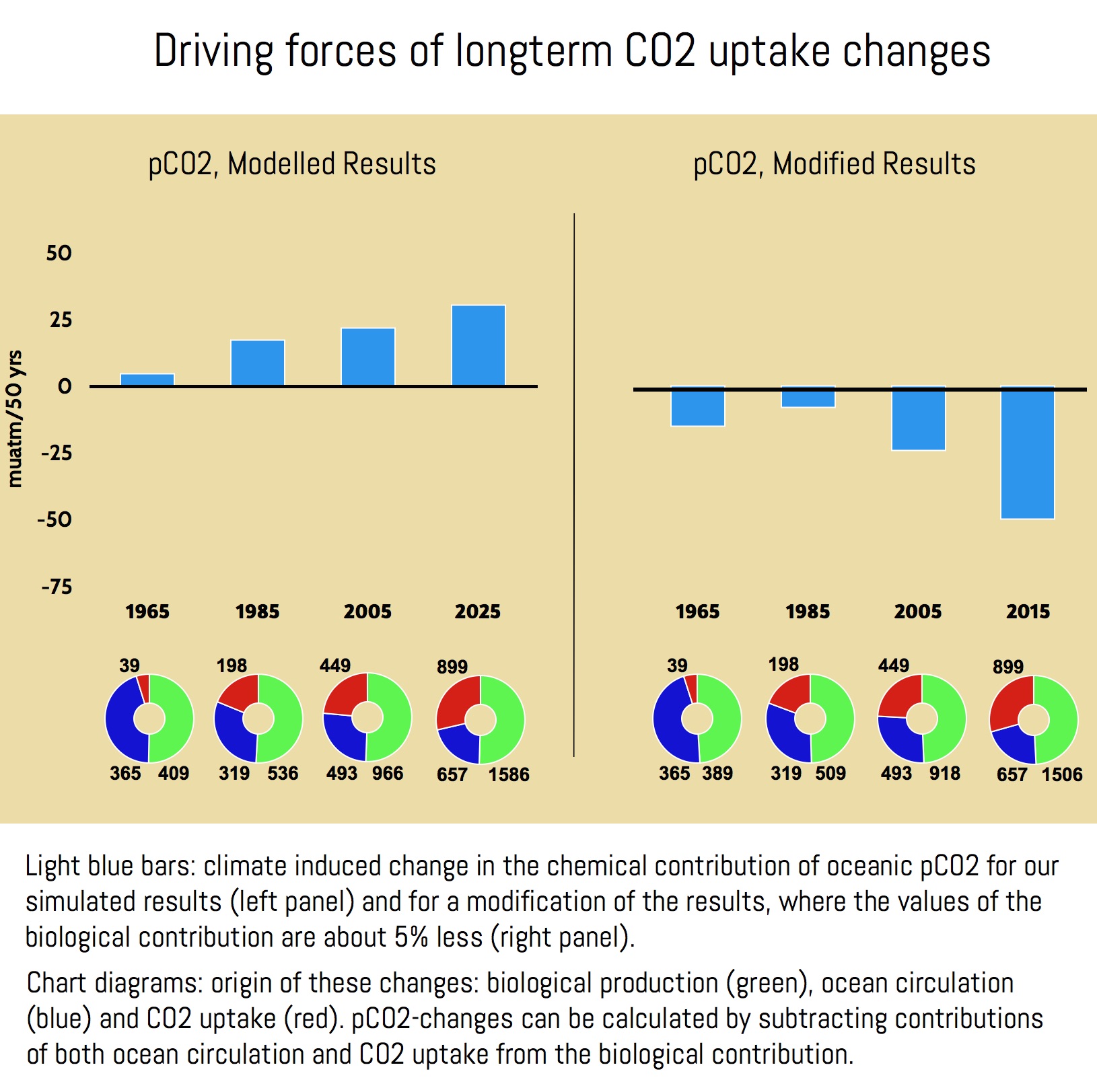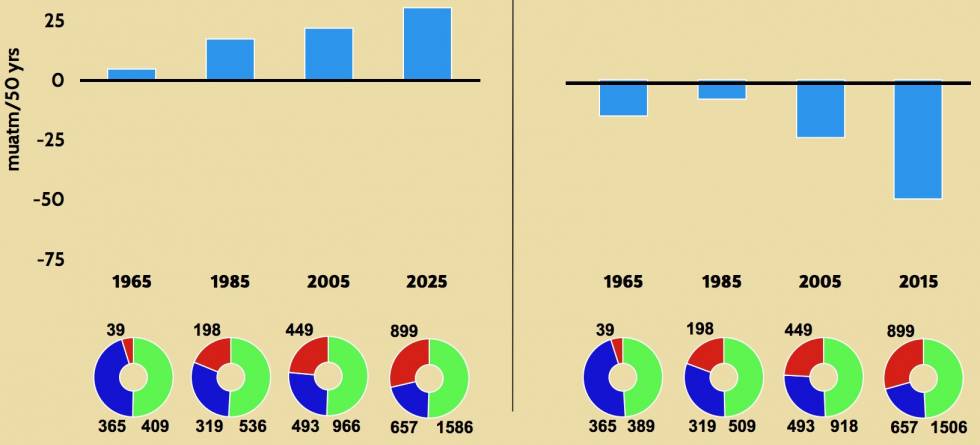The world's oceans take up approximately 26% of our current CO2 emissions, and are therefore moderating the increase of atmospheric CO2 concentrations and mitigating climate change. At the same time the warming climate is also effecting the CO2 uptake of the oceans.

- Many researchers expect that this warming will attenuate the future CO2 uptake of the oceans. In this case, the mitigating power of the ocean's will be reduced and we face an acceleration of climate change. Therefore, it is of high importance to understand and foresee the effects of climate change on the oceans uptake, Nadine Goris says, researcher at Uni Research and the Bjerknes Centre.
Together with colleagues in the SNACS project, she has conducted two experiments with the Earth System Model BCM-C (Bergen Climate Model with carbon cycling).
Sensitive CO2 uptake
The North Atlantic is one of the most important regions of the world's ocean when it comes to CO2 uptake and storage. Yet, several studies associated to the report of the Intergovernmental Panel on Climate Change suggest that its CO2 uptake is also most sensitive to climate change. The reasons for this sensitivity are still under debate. In order to contribute to this ongoing discussion, Goris and her colleagues conducted the model experiments.
- In both experiments we first apply observed CO2 emissions for the years 1850-2005 and secondly expected CO2 emissions for the years 2006-2099. But in our first experiment, we omit the climate impact of CO2. In this way, we can isolate the effect of climate change on the oceans uptake of CO2, as the latter is simply represented by the difference between both experiments, Goris explains.
In the simulations, climate change leads to a slow down of the ocean circulation as well as less biological production. Each of these processes affects the variables dissolved inorganic carbon and alkalinity, which again affect the partial pressure of CO2 and thereby the CO2 uptake.

A sequence of different processes
Only the sum over the climate change effect on all individual processes explains the effect of climate change on CO2. In the model experiments, the sum over all relevant processes leads to an uptake reduction of about 45 billion tons CO2. Yet, the analysis of individual processes shows us clearly, that the contributions of individual processes are way larger (in both positive and negative direction, see Figure). That means that climate change would lead to an enhanced CO2 uptake if, for example, the biological production was only about 5% smaller.
- Unfortunately, we only have a rudimental understanding of biological production and it is indeed very likely that the modelled biological production has an uncertainty of more than 5%, Goris says.
- Our analysis of both experiments shows that it is not possible to give a clear answer to the question if climate change is going to reduce the future CO2 uptake of the North Atlantic. This uncertainty is due to the fact that climate change triggers a sequence of different processes, which all interact with each other and the differences between their impacts are partly only small. For a better knowledge of the future CO2 uptake of the worlds oceans we need to better represent some of these processes in our model, like biological production.
Reference:
Goris, N., J. Tjiputra, J. Schwinger, and C. Heinze (2015), Responses of carbon uptake and oceanic pCO2 to climate change in the North Atlantic: A model study with the Bergen Earth System Model, Global Biogeochem. Cycles, 29, doi:10.1002/2015GB005109.
On this story in Nature Climate Change

